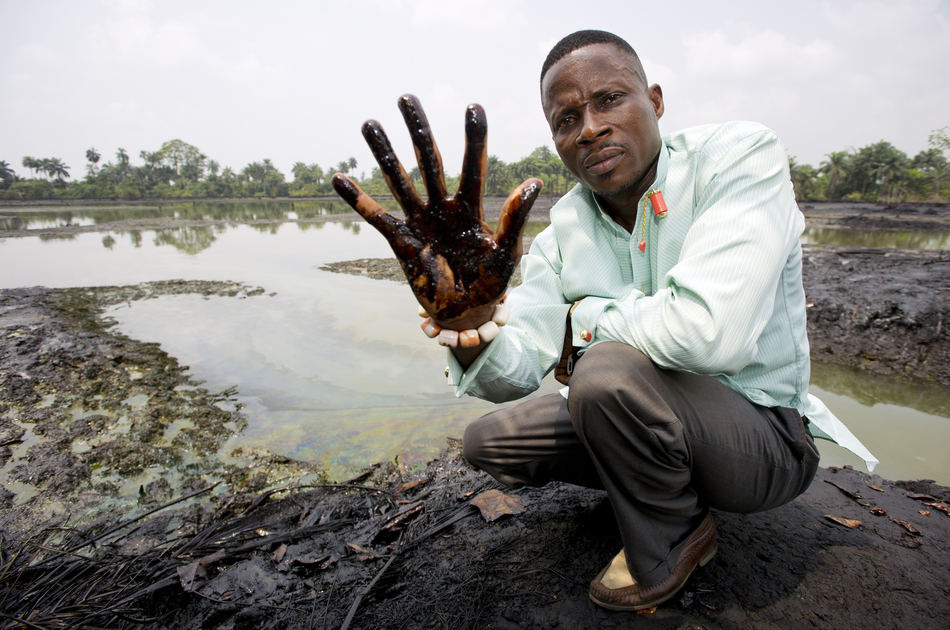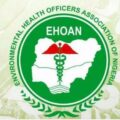Definition Of Environmental Agencies
Environmental agencies are federal, state or local government agencies established to coordinate programs aimed at reducing pollution and protecting the environment. They are often charged with protecting the natural environment by individuals, organizations and governments. Its objectives are to analyze or monitor the environment against misuse or degradation, conserve natural resources /existing natural environment and, where possible, to repair damage and reverse trends.
Environmental agencies in Nigeria, are part of the measures taken by the government to preserve the environment and its resources and protect Nigerians from ecological nuisance and hazardous wastes. To combat and prevent pollution in Nigeria, the federal government of Nigeria and several Nigerian states have established various agencies and organizations. These agencies are guided by and function in accordance to all the environmental laws and acts in Nigeria.
Environmental Agencies In Nigeria And Their Functions
EHORECON
EHORECON is an Agency under the Federal Ministry of Environment that registers, regulates and licenses Environmental Health Officers in Nigeria. Environmental health remained unregulated in Nigeria over the years until 2002, when the democratic government then decided to grant it professional recognition through the enactment of the Environmental Health Officers (Registration, etc.) Act 11 of 2002.
The Act established the Council charged with the responsibility of regulating Environmental Health profession in Nigeria. The specific objectives of the Council include: determining what standards of knowledge and skill are to be attained by persons seeking to become members of the profession of Environmental Health and improving those standards from time to time as circumstances may permit; securing in accordance with the provisions of the Act the establishment and maintenance of a register of persons registered under the Act as members of the profession and the publication from time to time of lists of those persons ;conducting examinations in the profession and awarding certificates or diplomas to successful candidates as appropriate and for such purpose, the Council shall prescribe fees to be paid in respect thereof, and performing the other functions conferred on the council by the act.
FEPA and Environmental Standards & Regulations Enforcement Agency (NESREA)
Prior to the dumping of toxic waste in Koko village, in Delta State, in 1987, Nigeria was ill-equipped to manage serious environmental crisis, as there were no institutional arrangements or mechanisms for environmental protection and enforcement of environmental laws and regulations in the country. Arising from the Koko toxic waste episode, the Federal Government promulgated the Harmful Waste Decree 42 of 1988, which facilitated the establishment of the Federal Environmental Protection Agency (FEPA) through Decree 58 of 1988 and 59 (amended) of 1992. FEPA was then charged with the overall responsibility for environmental management and protection. It is on record that by the establishment of FEPA, Nigeria became the first African country to establish a national institutional mechanism for environmental protection.
In the wisdom of the Government, FEPA and other relevant Departments in other Ministries were merged to form the Federal Ministry of Environment in 1999, but without an appropriate enabling law on enforcement issues. This situation created a vacuum in the effective enforcement of environmental laws, standards and regulations in the country. To address this lapse, the Federal Government in line with section 20 of the 1999 Constitution of the Federal Republic of Nigeria, established the National Environmental Standards and Regulations Enforcement Agency (NESREA), a parastatal of the Federal Ministry of Environment. By the NESREA establishment Act 2007, the Federal Environmental Protection Agency Act Cap F 10 LFN 2004 has been repealed. NESREA’s Mission is to inspire personal and collective responsibility in building an environmentally conscious society for the achievement of sustainable development in Nigeria.
Address: 4, Oro-Ago Street, Garki, Abuja FCT Nigeria
National Biosafety Management Agency (NBMA)
The National Biosafety Management Agency (NBMA) was established by the National Biosafety Management Agency Act 2015, to provide regulatory framework to adequately safe guard human health and the environment from potential adverse effects of modern biotechnology and genetically modified organisms, while harnessing the potentials of modern biotechnology and its derivatives, for the benefit of Nigerians. The Act came into force in April 2015, with the appointment of a Director General and Chief Executive Officer. The UN international agreement known as Cartagena Protocol on Biosafety which Nigeria signed is an environment protocol and it requires members to domesticate the agreement through a law. The Biosafety Act is therefore to domesticate the Protocol and address our National Biosafety requirements.
National Biosafety Management Agency (NBMA) mission is to promote the basic tenets of biosafety as enunciated in the Cartagena Protocol on Biosafety and enforce Nigeria National Biosafety Management Agency Act 2015 to ensure the safe application and use of products of modern biotechnology.
Forestry Research Institute of Nigeria (FRIN)
Forestry Research Institute of Nigeria (FRIN) was established as Federal Department of Forestry Research in 1954. The Institute’s Decree 35 of 1973 and order establishing Research Institute of 1977 changed the status of the Department to an institute being supervised by the Federal Ministry of Environment, but the only Research Institute of the Ministry. Forestry Research Institute of Nigeria has 7 specialized research departments (each having various specialized sections), three support departments, eleven outstations spread across all ecological zones of the country, three Centers and four ND/HND awarding colleges. FRIN’s mission is to ensure sustainable forest resource management and production, food production/security, forest-based industrial raw material provision, utilization, Bio-diversity conservation, self-employment opportunities and poverty alleviation.
National Oil Spill Detection and Response Agency (NOSDRA)
NOSDRA was established by the National Assembly of the Federal Republic of Nigeria Act of 2006. It was established with responsibility for preparedness, detection, and response to oil spillages in Nigeria. Its Head office is at 5th floor NAIC House plot 590, zone AO, Central Business District, Abuja. With its zonal offices in Lagos, Akure, Port-Harcourt, Delta, Kaduna, Akwa-Ibom and Bayelsa.
NOSDRA’s Mission is to restore and preserve our environment by ensuring best Oil field, storage and transmission practices in exploration, production and use of oil in the quest to achieve sustainable development in Nigeria. The Federal Government established the National Oil Spill Detection And Response Agency (NOSDRA) as an institutional framework to implement the National Oil Spill Contingency Plan.
Abuja Environmental Protection Board (AEPB)
Abuja Environmental Protection Board is a board that supervises the cleanliness of the FCT and refuse waste disposal. Its mission is to provide innovative, efficient and effective environmental regulation and waste management services towards ensuring a healthy, clean and sustainable FCT environment. They also raise public awareness and promote understanding of essential linkages between the environment and development within the Territory.
Address: Plot 776, Independence Avenue, Behind National Defense College, CBD, Abuja FCT Nigeria
National Emergency Management Agency (NEMA)
NEMA was established to manage disasters and education of the public in order to raise their level of awareness and reduce the effects of disasters in the Country. NEMA mission is to coordinate resources towards efficient and effective disaster prevention, preparedness, mitigation and response in Nigeria. It acts in the following areas: Coordination, Disaster Risk Reduction, search and rescue; policy and strategy; Geographic Information System, Advocacy, education, administration, finance and logistics; relief and rehabilitation; planning, research and forecasting.
Address: 8, Ademola Adetokunbo Crescent, Maitama, Abuja FCT Nigeria0800 2255 6362 More info Write a Review
Nigeria Hydrological Services Agency (NIHSA)
The Nigeria Hydrological Services Agency (NIHSA) is a governmental agency established under the Ministry of Water Resources. The Act for the establishment of the Nigeria Hydrological Services Agency was signed into law by the President on the 27th day of August, 2010. Its vision is to create a dynamic and advanced hydrological service with capabilities of facilitating and supporting the harnessing, controlling, preserving, development and management of Nigeria’s valuable water resources in a sustainable manner. They also provide information on the status and trends of the nation’s water resources including its location in time and space, extent, dependability, quality and the possibilities of its utilization and control, through the provision of reliable and high quality hydrological and hydrogeological data on a continuous basis.
Address: Plot 222, Foundation Plaza, Shettima Ali Monguno Crescent, Utako District, Abuja FCT Nigeria09 870 0132 More info Write a Review
River basin Authority (Federal Ministry Of Water Resources)
Federal Ministry Of Water Resources renders service portfolio in irrigation schemes, soil-erosion control and water development schemes. River Basin Development Authorities in Nigeria are government agencies involved in the management of water resources for agriculture and other uses. Each authority operates in an assigned geo-morphological and political boundary and work to improve agriculture and rural development through irrigation, control of river pollution and also to assist farmers in processing food crops. River basin authorities operations have been influenced by Nigeria’s economic and political changes, ten years after they were established their impact has been minimal.
Concerns about sustainable food production in Nigeria after the Sahel drought of the early 1970s and a decline in agricultural output following Nigeria’s oil boom led to ideas about investing in sustainable food production and managing water resources. Plans were then developed to create government agencies spread out within the country based on the drainage systems of various rivers. In 1973, two river basin authorities were established for Sokoto River and Lake Chad basin.
Address: Area 1, Secretariat, Abuja FCT Nigeria09-234 2415, 09-523 3017 More info Write a Review





